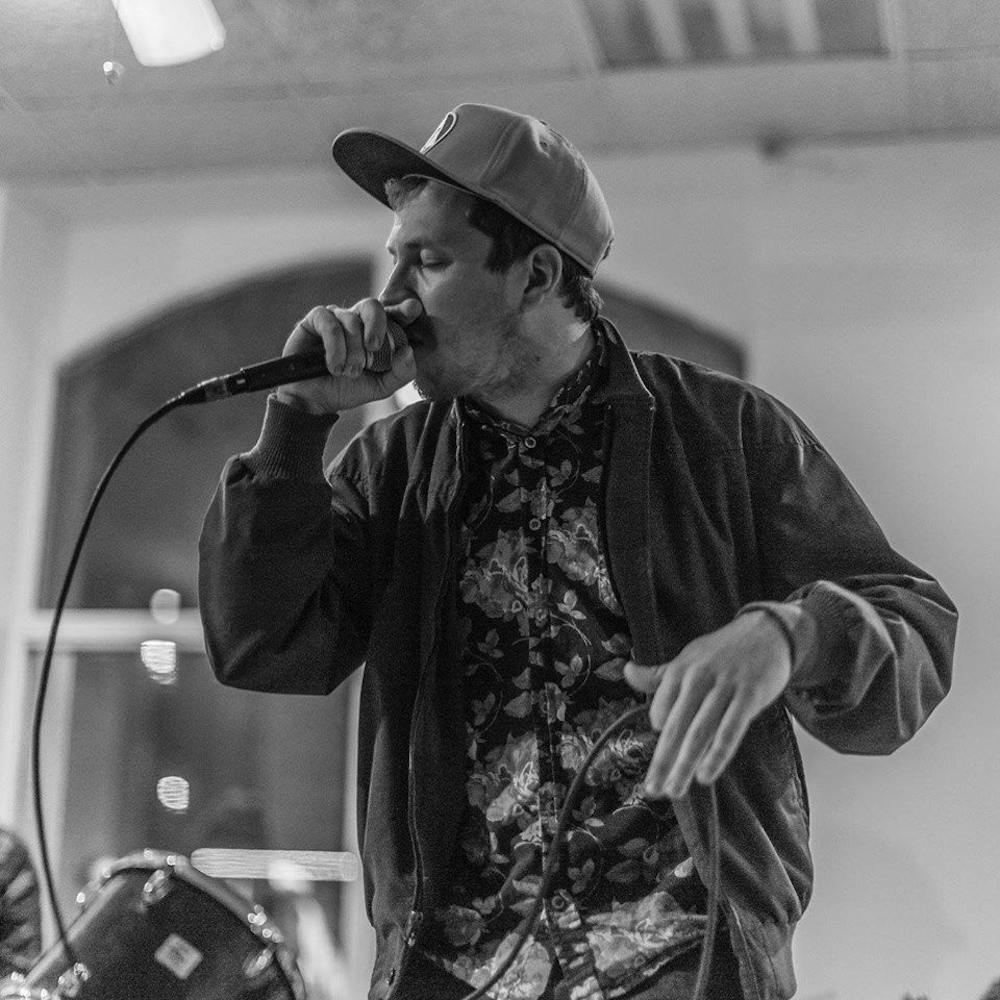Eric Axelman ’12.5 aims to revolutionize the way the public consumes music in his debut solo album “Too Much,” to be released Friday. He inventively merges audio and visual elements to enhance the creative experiences of rap and hip hop.
“Too Much” was produced by Providence local DeeJay Kellan along with Alex Han ’17, Jonny Koh ’13, who goes by Lazy Rabbit in the music world, and Loren Fulton ’12, also known as Cognate. The album also features Chloe Kibble ’17. As evidenced by this crew of collaborators, Axelman has maintained a close relationship with the Brown musical community, which he considers full of diligent students “excited to try new things.”
Axelman was inspired by artists like Kendrick Lamar and Beyoncé who “emphasize visuals so that they are equally as important as the songs themselves.” Unlike many artists who craft visuals as an afterthought, Axelman attempts “to think about the music videos at the exact same time as writing the song to create a visual and musical story.”
Axelman prefers not to pick a single genre to describe “Too Much,” but if pressed, he categorizes his work as “alternative hip hop.”
“When you are only thought of in a certain way, there’s less room for experimentation, and I like flexibility and being able to experiment as much as possible,” Axelman said of his reluctance to assume a genre.
Axelman sticks to this sort of experimentation with respect to the sound of his work. “I’m trying to do what new hip hop is doing, which is use the space between rapping and singing and create different types of sounds and personalities with my voice.”
Axelman cites Kanye West, Kendrick Lamar and Chance the Rapper as pioneers in blending rhythmic singing and rap. “These artists are pushing the envelope when it comes to content and expanding what hip hop can be when it comes to the voice,” Axelman said.
Axelman enjoys a wide variety of selections that cross genres. “I’m into glitch stuff, some trap music and when artists blend certain elements of trap and soul,” he said. “‘Life of Pablo’ and ‘Coloring Book’ are really brilliant examples of blending modern trap and drums with really interesting non-conventional sounds.”
Axelman’s journey to becoming an activist and rapper began in fifth grade, when he “got into music and rhythm” after learning to play the drums. His relationship with meter continued to develop when he learned to rap junior year of high school. “Using patterns of sound with words — it’s enthralling,” he said.
But rap offered more than just the appeal of a deep baseline. Axelman said that his upbringing in Maine sheltered him from the reality of current race relations and the modern civil rights movement. The thematic complexity of rap allowed him to better grasp current tensions and “enlightened (him) about the terrible things that white America was doing to people of color.”
Axelman did not pursue his passion for music academically. He decided to concentrate in environmental science and work in the lab of Mark Bertness, a professor of ecology and evolutionary biology. Still, Axelman’s senior year at Brown proved instrumental to his development as an artist, as he released his first mixtape. He added that during his final semester as a point-fiver, he threw large parties at his home on Wickenden Street and received positive reactions to his performances. “People seemed to like my stuff, which was really exciting.”
“After graduation, his identity shifted more towards his social conscience, his music and that sphere,” Bertness said.
Axelman slowly built up a resume with experiences teaching hip hop. He first used hip hop as a medium for creative writing but slowly began to utilize the genre as a means for discussion on racial inequality. “Especially as a white person doing hip hop, I had a responsibility to talk about modern civil rights and cultural appropriation.”
Axelman created a hip hop program at the Wheeler School three years ago alongside SydeSho, his teaching and performance partner in the duo Funk Underground. “As a white dude, I shouldn’t be the only voice claiming to understand hip hop. That’s unacceptable, so with SydeSho’s help, we made sure that there was equality in what was represented in our discussions.” The courses mostly tackled racism, segregation and civil rights issues like mass incarceration.
Funk Underground released a mixtape in June 2015 and toured the northeastern and Midwestern United States and Canada over the summer, but Axelman and SydeSho are currently pursuing their own solo music careers.
Besides his work as an eductor and musician, Axelman, along with Nic Gonzales and SydeSho, launched Pushed Learning and Media, a nonprofit that strives to “maintain conversation with people regarding the complexities of identity, privilege and oppression in the modern world.”
“Most white people consuming black art don’t care about black struggles and black politics. They are willing to listen to hip hop but aren’t willing to talk about the issues these artists are bringing up,” Axelman said. “The hypocrisy of valuing black music but not black politics disgusts me.”
Axelman urges other white rap artists to take their music seriously and understand the cultural significance of rap music. “White artists should take the fact that they are doing black music very seriously and be honest with the fact that they are benefitting from black culture. The way they give back is to stand up for black and Latino political issues.”





